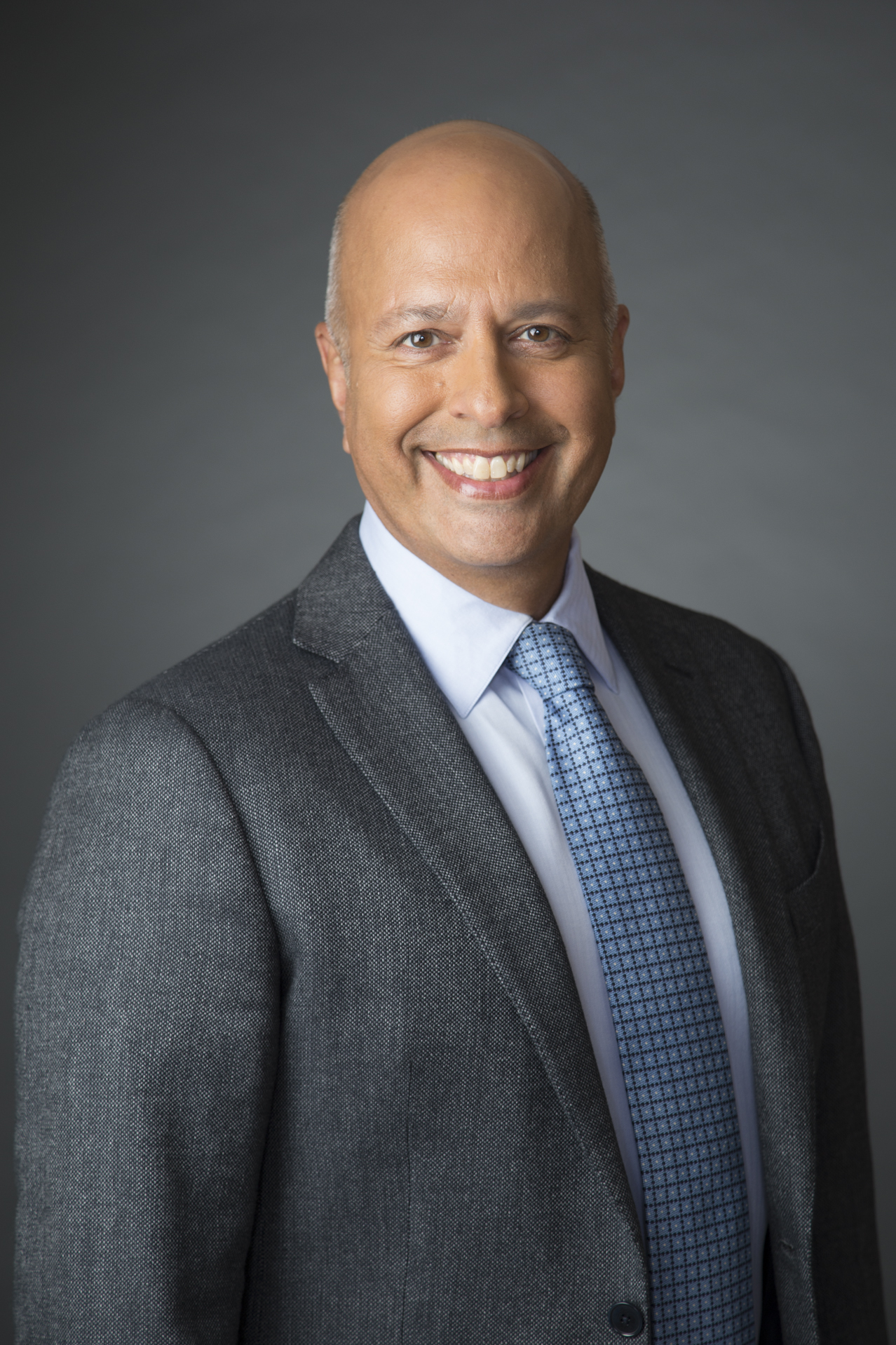Transcripts

Erik: Joining me now is Dr. Anas Alhajji, founder of Energy Outlook Advisors and noted keynote speaker and general expert on energy markets. Anas prepared a slide deck to accompany this week's interview. Listeners, you'll find the download link in your research roundup email. If you don't have a research roundup email, just go to our homepage macrovoices.com. Click the red button above Anas's picture that says looking for the downloads. Anas, it's great to have you back. I wanted to ask you back because we've just passed the one year anniversary of the beginning of the Ukraine war with Russia. Let's start with the lessons learned to date from this experience in with respect to energy markets. What were the surprises? What have we taken away? What have we learned?
Anas: Thank you very much for having me, Erik and it's always a pleasure to come back to MacroVoices. We learned several lessons in oil and gas and other lessons in even macro economy and related issues like in international trade. But when it comes to oil, one of the main results of what we've seen in a year of conflict is the change in the direction of international trade in energy sources. And specifically, we are talking here about oil, gas, and coal. Just to give you an example of this change. India's oil imports from Russia in December 2021, were only 1% of the total imports, the total oil imports of India. So it was 1% in December 2021. In December 2022, it jumped to 21%. And right now, it is about 24%. Simply because we have this diversion where oil start going to Asia instead of Europe. For China and by the way, and this is a good lesson for listeners right now, because this is one of the most important outcomes of this war is we have to be very careful with the data. And I will emphasize this point one more time. And the reason why because whenever we get data from India, or China, or Saudi Arabia, or any other country, these are the official data. But the market is somewhere else because we have a massive black market on one side. And some countries like China are importing the Russian oil through a third party. So they show that they are importing oil, let's say from Malaysia or Indonesia or other country. But really that is Russian oil.
So if you look at the official Chinese data, we see a jump in oil imports, until almost June or July. And then it dropped and people think well, China is not importing that much from Russia, while China basically is importing massive amount from the black market, and another amount coming from third countries. So we've seen this change in direction, while we've seen African and Middle Eastern countries, exporting to Europe to replace the Russian crude. So the first result is the change in direction of international trade and energy resources that applies to natural gas and it applies to coal to. The second result is the filling of the Chinese strategic reserves. China used most of its strategic reserves in 2021 to prevent prices from reaching $100. And they were hoping that because of the seasonality that global oil demand will decline in the first quarter of 2022 and with that prices will decline and with that they can refill and Putin goes to Ukraine, prices go through the roof and the Chinese got stuck. But they got lucky. Lucky on two fronts. First, they were able to get the Russian crude. And the second, they had the lockdowns. So from one side the demand declined substantially. On the other they were able to get the cheap crude they were dreaming off. And they were able to refill their commercial inventories and their strategic petroleum reserves. Until the end of the year of last year 2022, they had 1.1 billion barrels of reserves, that's commercial and SPR, underground and above ground. And although the commercial inventories declined in recent months, the level of inventories of total inventories in China today is higher than that of the United States, despite the fact that the US consumption is higher than that of China by five to 6 million barrels a day. So the first result is change in direction of trade. The second result is the filling of the Chinese strategic reserves. And as you recall from our previous Interview, the implications of the Chinese filling up and reusing that are huge.

Erik: Joining me now is MI2 founder, Julian Brigden. Julian, it's great to have you back on the show. I want to start with inflation. A lot of people are saying that it's topped. Okay, my question is, well, we all know that inflation was driven, at least partly by pandemic effects. That's probably why we got so high. But even if it's topped, does that mean we're going back to 2% or does that mean that we're really in a new regime that is going to be more inflationary?
Julian: So I mean structurally, we don't know that for definite, right. But if you ask me the likely path of the dots over the next decade, and are they structurally inflationary? My answer would be probably yes. Now, I mean, my analogy has always been the sort of late 60s into the 1970s, to some degree. And even then, in that period we saw four big waves of inflation. The point is, if you never rang, we never were truly successful in ringing out the inflation. And so each sort of low was slightly higher after that initial burst. And that's kind of the world I think we're living in. Right here, right now that would almost certainly suggest that we are and this has certainly been our view. And since late summer, last year that inflation has topped, at least for now. And it is coming down. I think there is a couple of things that the bulls don't quite understand about the relationship between inflation and nominal GDP. And how just even if we were to wake up tomorrow morning, and inflation would be zero, the Fed would still be raising rates. Because I think, the equity boys myopically focus on that inflation component of nominal GDP and don't look at nominal GDP in aggregate, that's very important. So bottom line, I think it is coming down. Certainly headline, I can see quite a lot of stickiness in core and services. And that means the labor market has to be addressed and that's a different question Erik.

Erik: Joining me now is ECRI co-founder Lakshman Achuthan. As usual Lak prepared a terrific slide deck to accompany this week's interview. You'll find the download link in your research roundup email. If you don't have a research roundup email, it means you're not yet registered at macrovoices.com. Just go to our homepage, click the red button above Lak picture that says, looking for the downloads. Lak, It's great to have you back last time that we had you on I think last summer sometime, you had growing conviction toward a recession call. And it seemed that I that was my view at the time, too. It still seems to me like even though maybe we've got Jay Powell making a victory lap claiming that he is achieved some sort of soft landing. I'm not necessarily persuaded that there's still no recession coming. I think it's just taken a little bit longer than I expected. How do you see it? And what are the cycles telling you?
Lakshman: Erik, thank you so much for having me back. We do still have a recession call on that hasn't changed. And as you said, we did talk last summer, we were talking about how we were building that recession call. The conviction around that recession call. And if you'll recall, it was predicated on our leading indicators of major sectors of the economy and, and we had a strong downturn in the goods sector, in manufacturing and construction. And, you know, that's pretty much happening. That's that hasn't gone away. And on top of that, you get more aggressive fed tightening. I think most people's recession forecast that we saw last year, was built upon the kind of surprisingly aggressive fed. You know, quote, unquote, surprisingly aggressive fed starting around July when they started going 75 basis points per meeting and hiking. And that's very different than our recession call our recession calls not built on that.
And so, as you mentioned in the in the lead in with the Fed, approaching some sort of, you know, victory lap or whatever, and then the market kind of getting excited about the potential for that. There's the idea that there's a soft landing. Now, that may be possible if your entire recession call was predicated on the Fed tightening. But if, like ECRI (Economic Cycle Research Institute) that I don't think there's a lot of places like ECRI actually, that we're doing it based on the drivers of the cycle. Those are still cycling down. I mean, our analysis is different, because we've been doing this a very long time for several generations. And so there's a lot of advancements in how you monitor the drivers of the cycles. And watching those the recession call is in full effect. And we should get into that. I mean, I think that's an interesting part of our of our discussion that we could have today.

Erik: Joining me now is Eurodollar guru and Eurodollar University founder Jeff Snider. For anyone who's not familiar with Jeff's work, he is known for his terrific graphs, charts, and slide decks. And this week is no exception. So be sure to download Jeff's slide deck to accompany this interview. Registered users will find the link in their research roundup email. If you're not yet registered, just go to our homepage at MacroVoices.com. Click the red button above Jeff's picture that says "Looking for the downloads."
Jeff, it's great to have you back on the show. Before we dive into the slide deck, I just want to start with the high-level picture because inflation is on everybody's mind. We've had a number of people who have expressed this transitory view that basically inflation was entirely about supply chains and the pandemic ending. It was a flash in the pan, it's all going away, and we're headed back down to 2%. There have been some other guests who have said, "Well, wait a minute, we've got a new inflationary trend. Reshoring of critical industries is going to be inflationary. There are other secular inflation causes that are going to allow us to come off of those high numbers after the pandemic, but we're not going back down to 2%. We're going maybe down to 4% if we're lucky." Then just last week, we had Alex Gurevich say, "No, forget about 2%. We're going negative. We're headed into a deeply deflationary event." Now, the last time we had you on, you said, "Well, it's a little more nuanced than all of that. The price increases are probably likely to continue, but it's not monetary inflation that's causing them." So this is all kind of a big jumble in my mind. Before we dive into the slide deck, just give me the big picture rundown. How should we be thinking about inflation now in these post-pandemic times?
Jeff: Yeah, well, first of all, thanks for having me back. I always look forward to coming on MacroVoices and chatting with you because we get to talk about all this interesting stuff because we live in such interesting times. And I think that is probably the big question on everybody's mind. We went through a consumer price shock that lasted probably longer than most people were expecting, myself included. And now, maybe we're seeing some progress in it, but what really comes next? Is it just a transitory disinflationary period? Are we going to see long-run trends rise well into the future? There's, I think, enormous questions and uncertainty, I think it's certainly in the public mind about what really comes next. Now, let's see CPIs starting to come down a little bit. I like how you said that my view is usually more nuanced, because usually, over the long run, the way consumer prices behave can be very different from one time to the next. But as you already pointed out, from my view of the monetary perspective, that kind of precludes long-run secular inflation, because we still don't see the type of money excess that you would need or require, in order to lead into something like the 1970s all over again. Because really, that's all inflation is, genuine inflation is nothing more than excessive currency creation, chasing too few goods.
I fall into the camp where you, and so many others, think about consumer prices over the last couple of years as being transitory because they were due to simple economics, where demand shifted, in part by government intervention, went further than supply could service. Therefore, again, simple economics, prices had to adjust. But in adjusting to higher prices, it creates this continuity in the overall macro global economy, which has to be worked out one way or the other. Either, the economy has to come roaring back at some point to allow for consumers and businesses to pay for these higher, especially basic necessity costs. Or those higher prices will be the cure for the higher prices, because eventually, the economy will have to fall off because of too much activity being redirected to the least productive parts of the system. And I think that's what we're seeing right now. We can get into the slide deck for it, but big picture, in general terms, it's I don't see anything that looks like the 1970s. In fact, this is a question going back to the 1970s that officials and economists had wrestled with at the time. And I always use this quote from former Federal Reserve Chairman Arthur Burns in August of 1971, that quite auspicious month back then, where he recognized that, you know, okay, we had consumer price increases, we had genuine inflation up until the recession of 1970. And then everybody expected that the recession would tamp down on those consumer price pressures. And after we got through the 1970 recession, that would be the end of the whole affair. But that's not what happened. And so in August 1971, Burns testified to Congress. He said, "A year or two ago, it was generally expected that extensive slack and resource use such as we've been experiencing would lead to significant moderation in the inflationary spiral. This has not happened either here or abroad. The rules of economics are not working in quite the way they used to," except he was wrong. The rules of economics were working fine, what he was missing.
I think what a lot of people are missing today is the underlying monetary issue. Burns and the Federal Reserve back then, they had no idea what was going on in the Eurodollar system. They really didn't have much idea what's going on in the banking system, either except that the banks were making tons of new loans all the time. And that was what was creating the next wave of what will become the great inflation. But without that monetary expansion in 2022, into 2023, we should expect, as Burns was in '71, that if we do have a recession this year, and I believe we will, that should be enough to reduce the supply shock pressures and bring consumer prices back down. But the question is, what does that mean? Does it mean that consumer prices or the CPI goes back to 2%? As you alluded to? Or is there a little bit more nuance there, where consumer prices might fall a little bit as we go through maybe a deep recession, and then come back up to more of a lower and disinflationary level in between? I think that's the major question that we really should be wrestling with right now.

Erik: Joining me now is HonTe Investments fund manager Alex Gurevich. Alex, it's great to get you back on the show on this fed day. We're recording on Wednesday afternoon, just minutes well, maybe an hour after the Fed made their announcement that they hiked 25 basis points as expected. There was also a Fed press briefing and as Jay Powell began speaking, you actually tweeted in reaction to something he said, please tell us about that.
Alex: It's good to be back. It's always fun to talk to Erik. I am puzzled by the Fed's actions. I listened carefully to the press conference, but it doesn't make a lot of sense to me. I am not one to criticize the Fed, but their statement that "there are consequences of our tightenings, and the full consequences of all our tightenings have yet to be felt" is spot on. Due to policy lag, we cannot fully experience the consequences of the tightenings that have occurred over the last year. Now, even without the full effects of those tightenings, we're seeing inflation, every possible measure of inflation, decelerating and coming down. And the biggest input to estimate future inflation is inflation itself. So, as inflation is coming down, it creates less and less momentum for future inflation. Meanwhile, the tightening has yet to filter through the system. I am really stumbled. I don't understand how people could be concerned about inflation at this stage and not deflation. I know I am sounding very forceful. Everything in the markets is a probabilistic statement. So when I say things with such confidence, all I mean is that one outcome is, in my opinion, more likely than the other. Of course, any outcome is possible. But why people right now worry about inflation more than deflation totally eludes me. Maybe you can help me with that a little?
MACRO VOICES is presented for informational and entertainment purposes only. The information presented in MACRO VOICES should NOT be construed as investment advice. Always consult a licensed investment professional before making important investment decisions. The opinions expressed on MACRO VOICES are those of the participants. MACRO VOICES, its producers, and hosts Erik Townsend and Patrick Ceresna shall NOT be liable for losses resulting from investment decisions based on information or viewpoints presented on MACRO VOICES.
